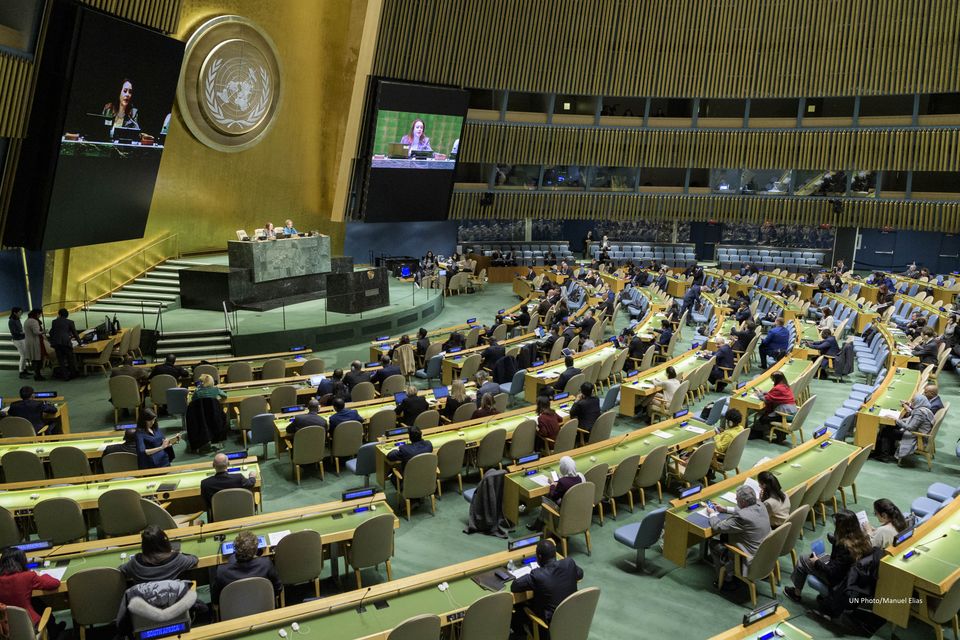Спільний виступ України та Грузії на засіданні Комітету по Статуту ООН щодо пункту порядку денного: «Мирне вирішення спорів»

Madame Chair,
At the outset, we would like to underscore the particular importance of the topic of the peaceful settlement of disputes for our countries and share practical concerns and suggestions regarding the use of mediation.
We are staunch believers in the notion of a peaceful resolution of conflicts. Our delegations proceed from the fact that Article 2(3) and its detailed elaboration in Article 33 of the UN Charter envisage an obligation to settle any international dispute peacefully.
We are also convinced that aspirations to achieve peace should not be taken as readiness to accept the breach of the UN principles. The latter path is detrimental for both regional and global security.
In addressing the issue of mediation, one aspect particularly deserves mentioning. That is that only genuinely neutral actors can be constructive and efficient mediators.
This brings me to the first point regarding a contrast between theory and practice. There are cases when a party to a conflict tries to cast itself into a mediator’s role thus attempting to avoid responsibility. The ongoing armed conflict does not entail a suspension of the general obligations existing under the Charter, including an obligation to settle any international disputes peacefully. For example, the Russian Federation as aggressor state does not recognize itself as a party to the conflicts with Georgia and Ukraine and instead where possible, attempts to portray itself as a mediating side.
Against this background there are following important aspects to keep in mind:
1) the party that started a conflict does not seek its just and fair resolution; on the contrary, it aims at consolidating its political, territorial or other gains. In violation of principle of international law that no territorial acquisition resulting from the threat or use of force shall be recognized as legal.
2) allowing a party to a conflict to play a mediator’s role essentially undermines legitimacy of the overall mediation efforts, and leads to de facto protracting the conflict in question;
3) such a stance does not discharge the state in concern from the other responsibilities and obligations arising under international law, including the Geneva Conventions, which remain applicable to that state’s actions irrespective of its potential roles in and/or claims to mediation;
It is rather obvious that any mediation model wrought with such glaring shortcomings cannot be relied on for delivering a sustainable solution.
This leads me to the second point on mediators’ role. Their efforts could achieve a concrete result only when proposals on peaceful settlement are acceptable to the all parties of the conflict and there is a political will to implement them.
In the third point, while commending all mediators’ efforts in all conflicts, we would like to emphasize the necessity to strengthen the role of the United Nations in responding to ongoing conflicts. The United Nations was created with a noble goal of saving “succeeding generations from the scourge of war”. That goal remains as relevant as ever for the people of Georgia and Ukraine, who continue to face the threat and use of force against their sovereignty, territorial integrity and political independence. We recognize the vital role that UN plays in Geneva International Discussions (GID) and encourage its further active engagement in addressing consequences of Russian aggression against Georgia.
Madame Chair,
In conclusion, we deem it urgent for the UN family to take measures to limit the ability of a party to conflict to influence decisions within the United Nations, especially in the Security Council, which are aimed at peaceful settlement and resolution – especially considering that the UN Charter already contains respective provisions, which simply require unconditional and proper implementation and full compliance with.
Thank you.
